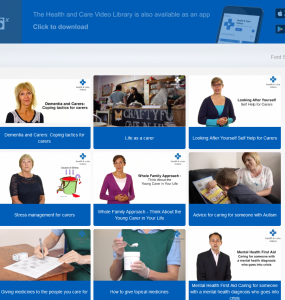Recently, Julia Danks, Clinical Specialist from the Meriden Team was invited to be a panel member on the Birmingham & Solihull Mental Health Trust ‘Schwartz Round’ event, in to talk about her experience getting started with using Behavioural Family Therapy for the first time after training.
What Are Schwartz Rounds?
Schwartz Rounds provide a structured forum where all staff, clinical and non-clinical, come together regularly to discuss the emotional and social aspects of working in healthcare.
The purpose of Rounds is to understand the challenges and rewards that are intrinsic to providing care, not to solve problems or to focus on the clinical aspects of patient care. Rounds can help staff feel more supported in their jobs, to give them the time and space to reflect on their roles which they might not otherwise have in their everyday routines on busy hospital wards. Evidence shows that staff who attend Rounds feel less stressed and isolated, with increased insight and appreciation for each other’s roles. They also help to reduce hierarchies between staff and to focus attention on relational aspects of care.
The underlying premise for Rounds is that the compassion shown by staff can make all the difference to a patient’s experience of care, but that in order to provide compassionate care staff must, in turn, feel supported in their work.
Schwartz Rounds in Birmingham & Solihull Mental Health NHS Foundation Trust
Schwartz Rounds were introduced in Birmingham & Solihull Mental Health NHS Foundation Trust as part of a Trust-wide programme of initiatives aimed at enhancing staff wellbeing in January 2019. The Trust will be holding an event every six weeks on different sites during 2019.
Each Schwartz Round has a different theme and the focus of the event that Julia was invited to was ‘Patients, Families and Me’. Julia spoke about her experiences of working with her first family using Behavioural Family Therapy (BFT) after attending BFT training in 2004.
Initially Julia and her co-worker found it quite a daunting prospect but after working closely with the family they could see them start to use and develop their skills and life began to turn around for the family. This had a lasting impact on Julia’s work and helped her to see the value of involving whole families in the service user’s care. Something which continues to inform the way she works.
The benefits were experienced by all of the family as well as the service user and indeed the service felt the benefits too as the family were able to deal with issues themselves and crisis contact with the team reduced dramatically.





